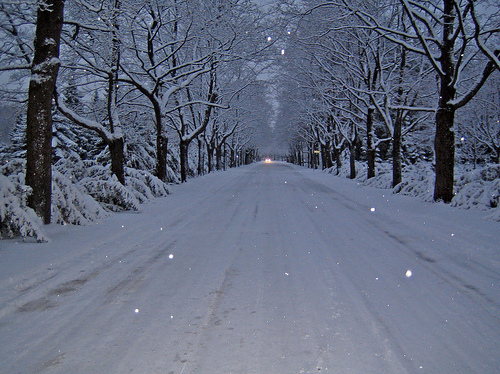by: James Yeary
In this moment of deep division in our body politic, James Yeary’s poetry offers a balm and an exhortation. Causality and connection are the nature of things, and constant change the force that could bind us, if only we are able to see the sameness of ourselves and others in the cracked reflections the world offers up.

The Bee
“If you have any questions, ask Pandurang.”
It is the color most commonly associated with mourning, the
end, secrets, power, evil, & elegance. Dukes of basil & cannabis
sit naked on the edge of a freezer-burned brick. My Lord fiddles.
The farmer’s daughter was born under a storm cloud. To her this
barn is not red but a sound. The bumblebee veil is dank, &
braided with blackberries, covering most of the arbor vita. I
blush when the sky announces the arrival of its twin.
Her heart is my city. They both agree God has a wandering mind.
It shines like machetes but doesn’t wear diamonds. My head is
like a gang.
Nothing is written on planets, so you better find some paper. A
door made of wood could turn into gold. And never having
appeared, he leaves only a body.
Poetry For The Voters
Our volition toward the imagination is entirely becoming. The totality of all things has its history subtracted. It makes the future tingle. All the consequences of that history are included in the present. Imagination and history intersect once, we have to imagine that. The record is skipping. The past is the furniture of the imagination, and the imagination is the architecture of the past. The totality with its history subtracted contains all its apprehensions, all its anticipations. Thoughts gather here by extension, and every thinker knows them. The apprehensions and anticipations are the subsumed future folded into the present. The air by extension must contain everything. But there is a time where this was not so. After the Sun leaves its station (and memory does this too), the constellations move in. Why should we consecrate that against which we rose? A family of three roll their voices along the bottom of a room. The basement begins with you writing. Remembering increases its size. The past we have given to our old callers, and the future our neighbors. Those callers are exactly who we imagine them to be. You’ve seen them with your neighbors. We all call on our neighbors sometimes.
If you don’t want them to shoot you then why do you bomb them?
There are many ideas out there, and one of them is true, but even the true idea is divided, and scattered among the speakers. To revere cause but not the thought of it. Into the dough. Husband and wife shake hands. A ring is administered to their wound, to let waking time resemble sleep for the rest of the night. This will not work for poets, whose church is a storm, who use the end for an altar.
If you don’t want them to shoot you then why do you bomb them?
We can let in just about anyone and call that the dream. The little essence is just lit-up substance. The fear and the thunder are made of the same. This we believe, though not with our records. Something we believe in, not something we believe with. Those who can’t relive the past are forced to remember it.
If you don’t want them to shoot you then why do you bomb them?
James Yeary has had chapbooks published by Fredrik Averin’s 42, Couch Press, Inkhorn, Abandoned Bike, and Hank’s Original Loose Gravel. His book length collaboration with Kyle Schlesinger, The Do How was nominated for the Phil Whalen Award by Charles Alexander (it doesn’t exist). He has taught collaborative writing as an art practice in the museum, the classroom, and on the street.





